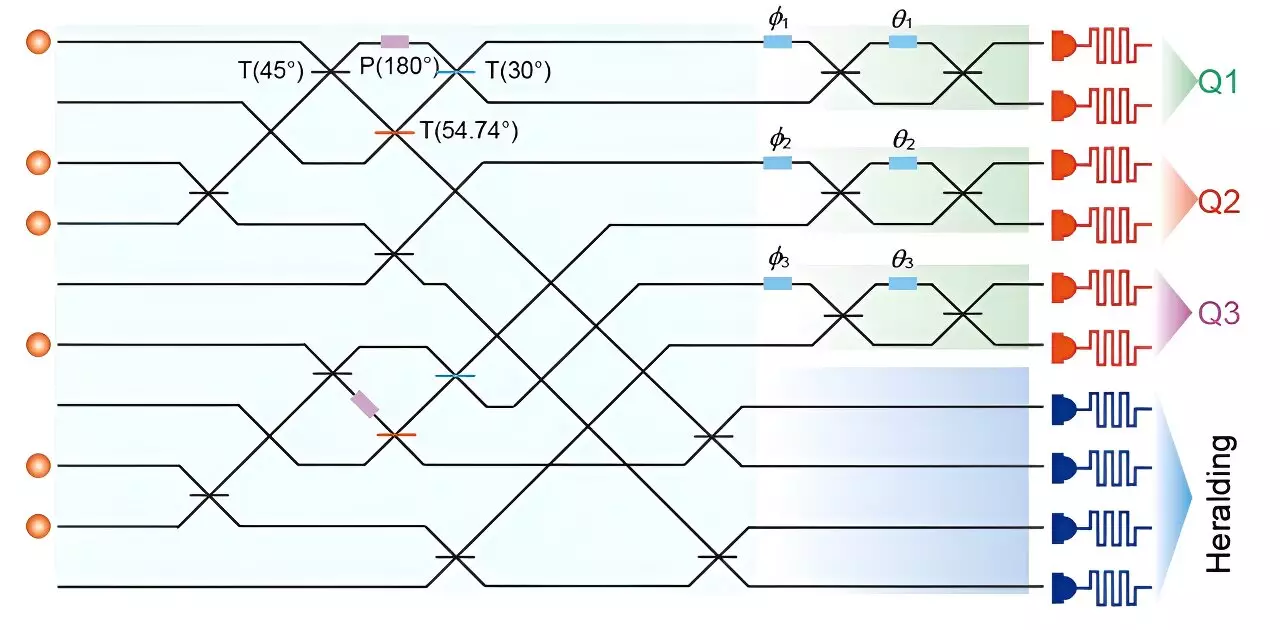Quantum computing has the potential to revolutionize the way we process information, with photonic quantum computers emerging as a promising technology. Leveraging the principles of quantum physics, these computers utilize particles of light, or photons, as the basis of their information processing units. While photonic quantum computers hold the promise of surpassing conventional quantum computers in terms of speed and long-distance information transmission, they have faced challenges due to weak interactions between individual photons.
A recent study published in Physical Review Letters by researchers at the University of Science and Technology of China showcased a breakthrough in advancing photonic quantum computing. The researchers demonstrated the creation of a large cluster state, specifically three-photon entanglement, which could facilitate quantum computation in a photonic system. This cluster state represents a significant step towards overcoming the limitations posed by weak interactions between photons.
The researchers employed a strategy that involved fusing small resource states, such as the three-photon Greenberger-Horne-Zeilinger (3-GHZ) state, into large-scale cluster states suitable for measurement-based quantum computing. The concepts of fusion and percolation have emerged as scalable approaches to realizing quantum computation in photonic systems without the need for deterministic entangling gates. The percolation theorem establishes that success is achievable if the success probability of fusion gate exceeds a specific threshold, laying the groundwork for more efficient quantum computation.
Of the two methods for generating a 3-GHZ state, the near-deterministic approach of creating entangled clusters in a heralded fashion has shown the most promise. The researchers were able to generate this state from a single-photon source in a photonic chip, marking a significant milestone in the journey towards fault-tolerant photonic quantum computing. By utilizing an InAs/GaAs quantum dot as the single-photon source and a programmable interferometer with 50% efficiency, the researchers demonstrated the potential for scaling up optical quantum computers reliant on 3-GHZ states for quantum information processing.
Building Towards Fault-Tolerant Quantum Computing
The recent developments in photonic quantum computing, including the creation of large cluster states and advancements in state generation, bring us closer to realizing fault-tolerant, measurement-based quantum computing utilizing photonic chips. This progress signifies a step forward in the effective implementation of fault-tolerant photonic quantum computers. The future holds the promise of achieving fusion gates surpassing the percolation threshold using multiple 3-GHZ resource states amalgamated to form more extensive entangled states, paving the way for the next generation of quantum computing technology.


Leave a Reply